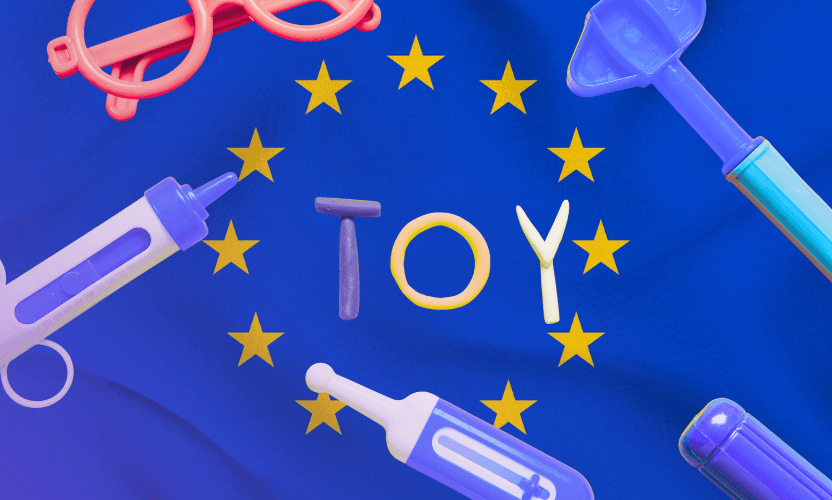SnapDragon detects and enforces on websites that spoof your brand and defraud your customers using sophisticated online brand protection software.
Is your brand being faked online? From replica websites posing as your brand to dodgy third-party suppliers, infringing websites can seriously harm your reputation – while diverting traffic from your official site. Snapdragon detects and takes down illicit websites for you, so you can focus on growing your business.
Find out how we do it.
What Do These Websites Look Like?

Fake websites can assume a few different forms depending on the product and intent. Here are the most common types SnapDragon regularly identifies:
- Replica sites: Scammers will create a convincing copy of your website, stealing your brand name, trademarks and copyright to pose as your brand. These online platforms often sell counterfeit goods, mimic luxury brands and thrive on offering products at significantly lower prices than the authentic versions. While they might seem tempting to consumers seeking affordable luxury, purchasing from these sites carries significant risks, including product quality issues, legal repercussions, and ethical concerns. It’s essential to support legitimate businesses and avoid replica websites to protect intellectual property, ensure fair competition, and support ethical manufacturing practices.
- Phishing sites: Rather than selling counterfeit goods, many sites are simply looking to extract data and steal from unsuspecting consumers, often offering no real inventory. Phishing sites are deceptive online platforms created to copy legitimate businesses or services, luring unsuspecting users into divulging sensitive data such as passwords, credit card numbers, or other sensitive information. These malicious sites often employ sophisticated techniques to appear authentic, making it difficult for users to detect the scam.
- Multi-brand: Offering illicit goods, multi-brand websites will infringe multiple brands including your own – posing as independent online shops. These sites often employ sophisticated designs and product listings to mimic legitimate retailers. However, their primary purpose is to steal customer information or sell counterfeit goods. These fraudulent websites pose a significant risk to consumers, as they can lead to financial loss, identity theft, and the purchase of substandard products.
How Can They Harm Your Brand?

- Diverted traffic: These illegitimate sites can divert search traffic away from your business. One common method is search engine optimisation (SEO) manipulation, where they use deceptive keywords and backlinks to rank higher in search results than legitimate sites. Additionally, they may engage in pay-per-click advertising, displaying misleading ads that direct users to their fraudulent platforms. Social media is another avenue for diverting traffic, with fake accounts and sponsored posts used to promote counterfeit products or services. These tactics erode trust in legitimate businesses and can lead to significant financial losses.
- Diverted revenue: By offering counterfeit products or services at lower prices, they lure consumers away from legitimate retailers. Furthermore, these fraudulent sites frequently engage in click fraud, artificially inflating advertising costs for legitimate businesses. Additionally, they can damage the reputation of legitimate brands by associating them with poor-quality products or unethical practices. This overall erosion of trust can lead to decreased sales and revenue for authentic businesses.
- Damaged reputation: By mimicking trusted brands and selling counterfeit or substandard products, these sites create a negative association with the genuine brand. Consumers who fall victim to these scams are likely to blame the legitimate brand for their experience, leading to a loss of trust and customer loyalty. Additionally, the sale of counterfeit products can undermine the value of the authentic brand, as it dilutes the brand’s image and impact. Unwitting customers receiving poor quality products, or scammed of their hard-earned money, may complain to (or about) you, harming your business and reputation.
- Customer harm: These platforms can lead to financial loss through unauthorised charges, identity theft by stealing personal information, and the purchase of counterfeit or substandard products that may be unsafe or ineffective due to being manufactured cheaply and dangerously. Furthermore, the proliferation of fraudulent websites erodes trust in online commerce, making consumers hesitant to make purchases, which can negatively impact legitimate businesses.
SnapDragon: Trusted by brands to protect their website.
So how do we do it?

Monitor
Our systems utilise sophisticated algorithms and machine learning to analyse vast amounts of online data, identifying patterns and anomalies associated with fraudulent activity. By monitoring websites, social media platforms, and other digital channels, SnapDragon can detect impersonation websites, phishing sites, and fraudulent multi-brand platforms

Detect
Our technology is designed to identify suspicious domains, counterfeit products, and deceptive marketing practices, allowing us to protect brands and consumers from falling victim to these scams.

Enforce
Using your intellectual property, we report fake sites to the website owner, host and/or registrar to have them removed. We utilise advanced monitoring systems to gather evidence of the infringement. This evidence can include screenshots, website URLs, and other relevant data. We also work closely with legal teams to initiate takedown procedures. This involves issuing cease and desist letters, filing legal complaints, and collaborating with internet service providers to remove the infringing content. We will also continue to monitor the situation, preventing the resurgence of fraudulent activity and protecting the client's brand reputation.

Investigate
We identify the seller’s identity, look for trends and target repeat offenders to keep fake websites down for good. We will also provide you with relevant information for any offline action, such as legal consultation.
When Should I Look Into Online Brand Protection?
The adage “prevention is better than cure” holds particularly true in the realm of online brand protection. While the immediate costs and complexities might seem daunting, the long-term benefits of a proactive approach far outweigh the potential damages of inaction.
- Early-Stage Businesses: Even if your business is in its infancy, laying the groundwork for brand protection is crucial. Registering trademarks, copyrights, or patents early on can prevent future disputes and establish a strong foundation for your brand. Moreover, implementing basic monitoring tools to track online mentions of your brand can provide early warning signs of potential issues.
- Established Businesses: If your business has been operating for some time, it’s likely that you already have a brand identity. However, the digital landscape evolves rapidly, and new threats emerge constantly. Regular brand audits and assessments are essential to identify vulnerabilities. Additionally, expanding into new markets or launching new products might require additional protection measures.
- Experiencing Brand Issues: If you’re already facing challenges such as counterfeiting, domain squatting, or negative online reviews, it’s imperative to seek professional help. A comprehensive brand protection strategy can help mitigate damage, restore your brand’s reputation, and prevent future occurrences.
Regardless of your business stage, it’s essential to recognise that online brand protection is an ongoing process.
The digital world is dynamic, and threats can evolve rapidly. Regular monitoring, evaluation, and adaptation of your protection strategy are key to safeguarding your brand’s value and reputation. By prioritising brand protection, you’re investing in the long-term success and sustainability of your business.
Remember, the cost of inaction can be far greater than the investment in proactive protection.
If you’re looking for an online brand protection solution, we’re here to help. Contact us today and book your free consultation.




